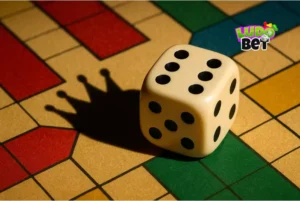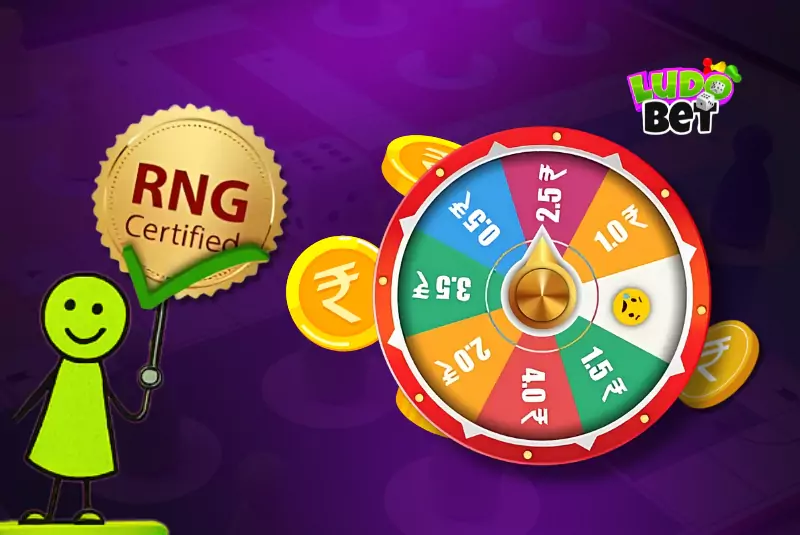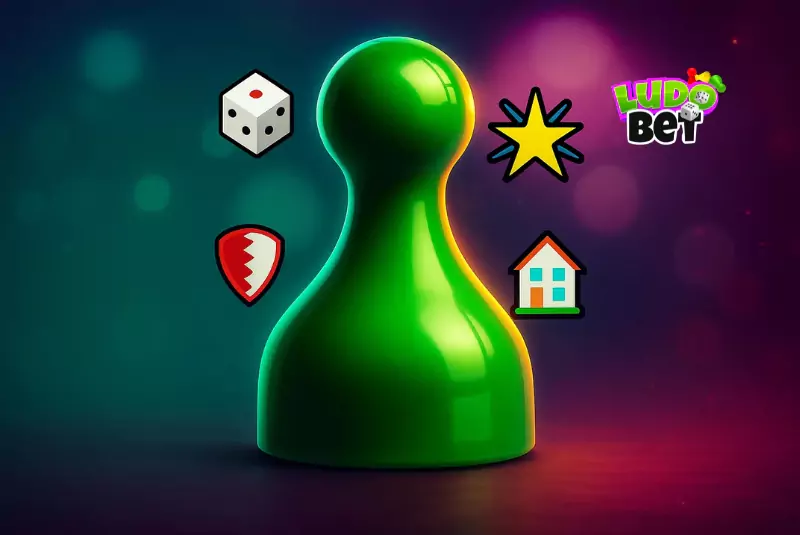Ludo is one of the most loved games in India. Whether it’s a Sunday afternoon with cousins or a late-night game with friends, Ludo always brings people together. But with the rise of online platforms like LudoBet, this simple board game has become even more exciting. Now, players can win real money, join tournaments, and enjoy different formats.
If you’ve just started playing online Ludo, you might come across some new terms that are different from the traditional game. Don’t worry, this guide will explain all the common Ludo terms, so you can play confidently and understand the game better.
🎲 Die / Dice

The dice is the small cube with numbers 1 to 6. In online Ludo, the dice is rolled digitally by tapping a button. The number you get decides how many steps your pawn (token) will move.
For example, if you roll a 5, you can move one of your pawns five steps forward on the board. If you roll a 6, you get an extra turn. It’s completely random and fair, especially on certified platforms, LudoBet, where the dice is RNG-certified, meaning every number comes randomly.
🟢 Pawn / Token

Each player in Ludo gets four pawns or tokens of the same color. These are the small coins or pieces that move around the board. Your goal in the game is to move all your pawns from the starting area to the center of the board, called the home.
On LudoBet, as soon as the game begins (especially in Ludo Timer mode), all four pawns are already active, so you can start moving them immediately without waiting for a 6.
🏠 Home

In Ludo, each player has a home area, which is the final destination for each pawn. Once a pawn completes a full circle of the board and enters the center triangle (colored area), it is said to have reached “home.”
🛡️ Safe Zone

Safe zones are marked squares on the Ludo board where pawns cannot be captured by opponents. These zones are usually right outside your home base (starting point) and are marked with an arrow.
When your pawn is sitting in a safe zone, other players cannot land on that square and “cut” your pawn. So, safe zones give your pawns protection while they wait for their next move.
Smart players use safe zones to protect important pawns, especially when opponents are nearby.
🌟 Star Tiles
These are the squares on the board that have a star symbol. These are also safe spots, just like safe zones. Normally, there are eight star tiles on a traditional Ludo board. When your pawn stands on a star tile, it is safe from being cut by opponents.
In LudoBet, these tiles remain a good spot to rest your pawn while planning your next strategy.
🛡️ Shield Tile
This is not a physical tile but a situation. When two or more of your pawns land on the same square, that square becomes a shield tile. In this case, your opponent cannot cut your pawns.
Shield tiles help you protect your pawns, especially when you’re playing in real-money games where each move matters.
Pro players often form shield tiles by placing their pawns together to block opponents and buy more time to score.
❌ Capturing a Pawn
This happens when your pawn lands on the same square where your opponent’s pawn is sitting (except on safe zones or shield tiles). This action is called “cutting” or capturing a pawn.
When a pawn is captured, it goes back to the base and must start its journey again. In online Ludo, capturing a pawn often gives you bonus points and an extra turn.
On LudoBet, capturing pawns is one of the fastest ways to score in Timer Ludo matches.
🔁 Extra Turn
In Ludo, you can get an extra turn in these cases:
- When you roll a 6.
- When you capture an opponent’s pawn.
- When your pawn reaches the home area.
An extra turn gives you a chance to move again immediately. Smart players use extra turns to set up their next big move or to cut an opponent’s pawn.
⛔ Pawn Blocking
Pawn blocking is a strategy where you place a pawn in such a position that it stops your opponent’s pawn from moving forward. This is usually done by placing your pawn just in front of the opponent’s pawn.
If the opponent needs a specific number to pass you, it becomes difficult for them to progress. In LudoBet, blocking can slow down your opponent and give you time to increase your lead.
7️⃣ Rule of Seven
This is more of a smart strategy than a game rule. It’s based on the idea that rolling a 6 or a 1 is not always guaranteed. That’s why you should always try to stay 7 steps ahead of your opponent to avoid being cut.
This rule helps you stay safe and gives you time to react if your opponent is closing in.
Ready to Play?

Now that you know all the common terms in online Ludo, you can play on LudoBet confidently, using these terms and strategies to your advantage. It offers real cash prizes, tournaments, and instant withdrawals, making your Ludo experience fun and rewarding.
Download LudoBet, practice using these terms while playing, and start your journey to win real cash today.






